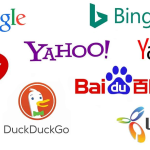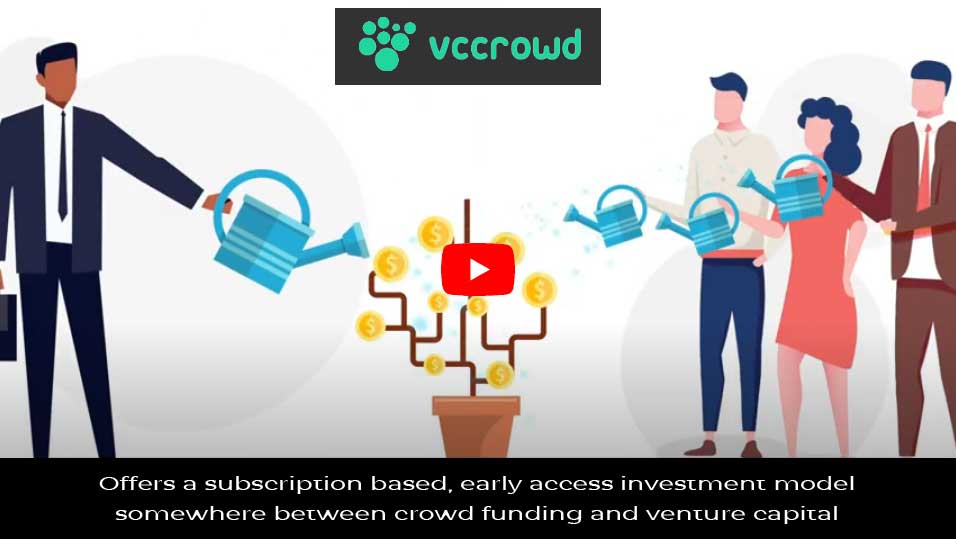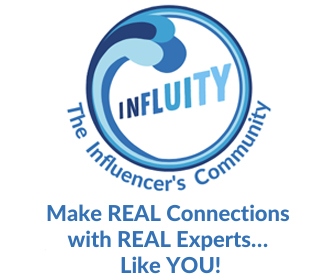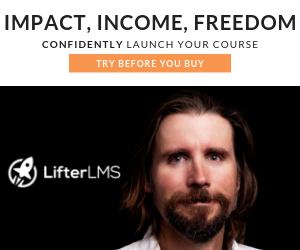 What are the 5 stages of entrepreneurship? What are the psychological aspects of an entrepreneur? And which one is the scariest?
What are the 5 stages of entrepreneurship? What are the psychological aspects of an entrepreneur? And which one is the scariest?
We don’t always realise it, but we go through precise psychological stages when we are becoming entrepreneurs. The biggest problem is that one stage is more deadly than all the other stages put together.
It’s the stage where we lose control because we are driven by outside forces.
How do we know which stage we are in? And how do we prepare ourselves for the stage that is going to seriously rock the boat? Let’s find out.
Right click to save this episode.
Note: (This is an unedited transcript)
At which point did your business life do you think that you are most vulnerable?
In today’s podcast, we’re going to look at the five stages of entrepreneurship And probably the most vulnerable point of all. It’s a short podcast, it should be. It’s just meant to make you think a bit. And then there’s fun bit at the end.
So what’s the first stage when we start out as an entrepreneur.
And you know that stage that’s the struggle when you’re always trying to find work, clients trying to do something and you look around you just like I looked around me when I got in New Zealand and I wanted to find people who had already made it.
So I looked at people like Dan Kennedy and Jay Abraham and especially Brian Tracy who I felt a special affinity for I bought all of his CDs, yes, CDs, and tapes, and books.
And that is the first stage when everything is a struggle, when we don’t know anything. And yet we’re trying to be the consultant. We’re trying to be the people that someone should spend money with.
Now it might be different for you, but in all the years that we’ve been in marketing, I’ve seen a lot of businesses, and you can tell when someone is at the starting phase because they’re always building themselves up to be bigger than they really are. But it’s a struggle, alright.
You just can’t find clients, then you find clients and they’re not such good clients. They make you run around, they don’t pay you in time. And then there are the good ones, the ones that really make you feel like you’re with something.
And that takes you to the second stage.
And you know you’re in the second stage because you start to get fussy. At first, all you’re trying to do is to cover the bills. Which is what we were doing when we started out in marketing.
We had a mortgage and we had certain payments to make. And back then, $3,000 is what we needed every single month, no matter what. So whichever clients came out way, good, bad, we would take them all.
But once we got past that $3,000 mark, we started to get fussy.
We started to look at which clients we could work with, which clients we would say yes to, which clients we would drop, which clients we wouldn’t even take on in the first place.
And once we started to get consistently past that $3,000 mark, about 3,000-5,000 – sometimes maybe even 4,000, then we could get into that fussy stage. So we started out with just gasping for bread, grabbing at straws. But then you move on to the stage where you’re getting fussy.
Which then takes you to the third stage.
And if we would take that $3,000 as a benchmark, then let’s say we’re now earning $5,000. You can now put away some of that money. You can put it in savings or investments or some people just decide to go on a holiday, somewhere.
It’s up to you how you work with that disposable income. But you have disposable income. You’ve paid for your computer. You’ve paid for your business cards, you’ve paid for everything.
And you’re in a stage where you’re starting to feel that you’re not sinking all the time, but that you’re bubbling on the water quite happily. You feel that if you could go on this way for at least a little while or even a long time, you’d be quite okay. You would think that this stage would last forever, but it never does.
Because you have to go to the fourth stage.
And the fourth stage is where you look around you, and you see that there are other people just like you. You and they had at least seemed to have a much larger income.
The holidays seemed to be a little more ostentatious than yours. And you think, wait a second, I need to get in on this secret. What are they doing that I’m not doing. And they also seemed to be more famous than you.
They seemed to have more followers on Twitter or TikTok or wherever. And they seemed to be more famous. And you want to be in that same spot. So you decide, okay. Let me sign up for whatever it is that they’re selling. Let me get into the inner circle. Let me figure it out as well.
And then I can duplicate exactly, or at least close to exactly what it is that they’re doing. And so then I can get at least half there and come or half the fame and then work my way up from there.
Which is what we did at Psychotactics as well.
One of the big reasons why I signed up with Jay Abraham was because he used to have these events where he’d have 1500 people in the audience. And he charged them, I don’t know, $5,000, $10,000.
Now, I know now that it doesn’t matter. You don’t have to charge so much and you don’t have to have that many people. But back then, I didn’t know any better. I didn’t have any benchmark, then what was being presented to me.
But I still wanted to know how he went about things. And so we started spending quite a lot of money. At some point we’d probably spent about $20,000.
That wasn’t for any consulting that was just for books and courses. And then we spent some more. Eventually we stopped. But I moved on to other people.
I wanted to learn how to create a membership site. And this was 5,000 BC which started all the way back in 2003. And I joined another membership site, which was run by Bill Myers.
I learned how he ran the site.
I wanted in a how he put together software, which was very rare back then. There were membership sites, but you know, that’s a main thing. And this is how we find ourselves in stage four.
Where we’re reasonably comfortable in terms of income, our clients are not, we’re resgrade, but they’re not bad either. We’re picking and choosing clients. And now we’re looking at ramping things up to be like a mentor, so what to be like people that we admire or just people who are more successful, who we perceive to be more successful.
And because we have a little amount of surplus money, we are now in a position to get into the inner circle. Do understand how we’re being sold to understand the ins and outs of things.
And this takes us to the fifth stage.
By this point, you should be well set, but you’re not. Because this is the most vulnerable position of all. When I ask clients why they started up in business, they usually don’t say that they want to make a million dollars.
Those are not not cases. The people that started up in business, they say that they have a idea, they want to promote something, they want to spend more time with their family, they don’t like being in a job at the back and call of somebody else.
And everybody likes to be comfortable in terms of revenue, but that’s not generally top of mind. But when we get to stage 5, we get to a stage of envy.
Take for instance a friend of mine, he has a podcast. He started his podcast at approximately the same time as I did. I could safely say that his content is not worse or better than our guests.
However, by a series of lucky incidents and quite a bit of hard work, he started to get about 3 million downloads. And at that point, we had about 15,000, which is exceptional. We now have fewer, maybe 10,000 or 5,000 times.
What started to bug me a lot was the fact that he had so many downloads and I had in my mind at least so few. We met at several podcasts conferences and one time he was sitting in the car and he said to me, “I’m kind of envious of you.” And I said, “Why.” I knew that he had way more podcasts, downloads than I did.
But he said, “Well, you’ve got so much time, you paint, you draw and you’re seeing they always sitting at the cafe, talking to people and taking pictures and to keep my podcasts going, I have to do a recording three, four times a week and then lots of these promotions and then I have to do interviews so I have to get ready for those interviews and make sure everything goes right.
I don’t have as much time and you spend time with your nieces and I have a couple of kids and I really would like to spend more time with them. So there I was getting envious about someone who in turn was envious about me.
This fifth stage is where you can already do what others are doing, but they are charging more, they have a great amount of fame and where you feel somehow that you are being cheated of all of that.
Somehow you deserve it more or at least as much as they do. There is a great amount of envy in the stage in for what. In stage two you’d already got in control of your expenses and you were starting to put away some money.
Stage three was even better stage for you improve the even further. Now envy, but that’s normal. And that’s because everybody on YouTube is seemingly doing better than you.
Everybody’s more famous in it’s driving you crazy. And this is the part where you start to lose control of things. You want to make more money because it’s fashionable to do so, you want to be famous because you think that’s a good idea and you have to ask yourself if you were starting up again, would you not rather be in stage two or stage three or stage four and be quite happy with it.
Did you didn’t really need stage five. I mean, it’s a great place to be where you are in a position to have time to be invious, but wouldn’t It would be nice if we could just stop at stage four where we’d earned enough, we were still learning from other people and we had good clients.
And we have lots of time to waste, just sit at the cafe doing nothing, not doubling our income and troubling our income and all of that nonsense that we hear of continuously online.
We don’t really need to be famous. You have to be famous for a week or two weeks before you realize that you don’t get any time to yourself. Everybody wants a piece of you. Everybody wants a selfie. Everybody wants you to be nice all the time.
And you don’t need to be nice all the time. You just need to be by yourself some of the time. So stage five with all that fame and all of that extra bit.
That’s the part that’s most dangerous of all. You wouldn’t think so, but that’s how it is. It’s a game of one upmanship. I think we’ll always so much happier if we just went stage one, stage two, stage three, and stage four and stopped.
Unfortunately, we’ll all enter stage five. And that’s when you need to control things. So that brings us to the end of this podcast.
What did we cover?
Well, we went through all of the stages and found out that stage five where we were most invious about other people and we think that we deserve as much.Well, you can’t get only part of what they have.
You can’t just get their fame, their fortune. You have to get their headaches. You have to get their neck problem, back problem. All the problems that they have, you have to get all of that stuff as well.
So there’s no point in being invious about them. But of course, we will be. And if you get over that, then things are cool.
The post The Five “Psychological Stages” Of Entrepreneurship – And One That’s More Scary Than The Rest appeared first on Psychotactics.













